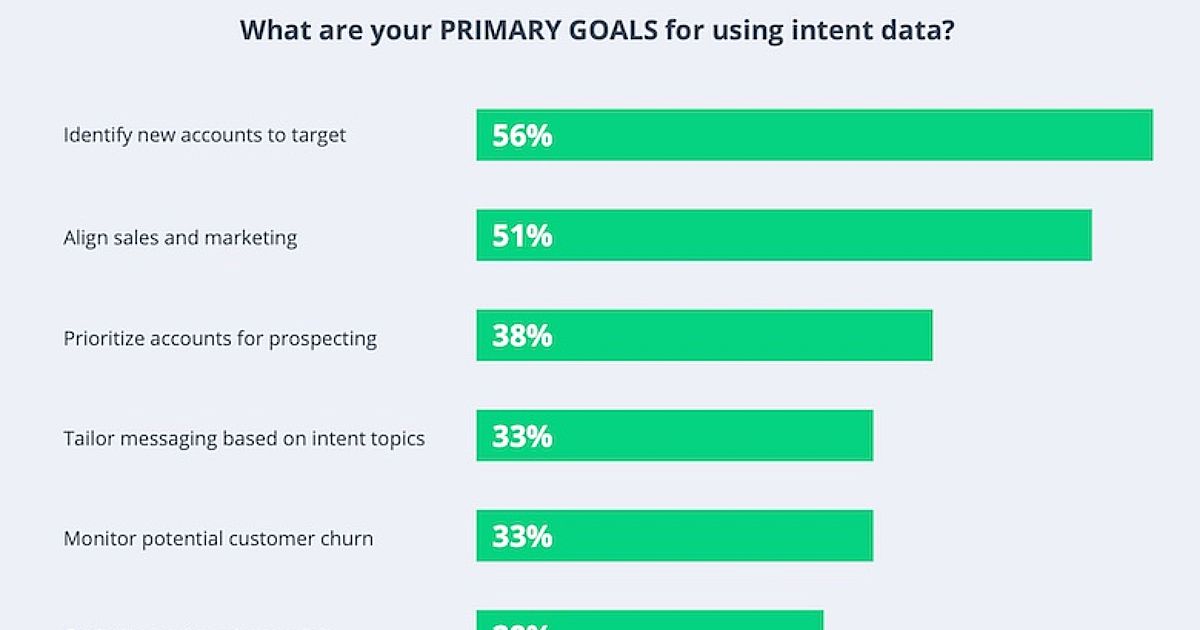
How to Ensure Digital Transformation Success: Take a Data-First Approach
Digital transformation isn't just about technology—it's about using data to drive smarter decisions and business growth. Learn how to build a data-driven strategy. Read more.

B2B marketers are using intent data to identify new accounts to target, align sales and marketing teams, and prioritize accounts for prospecting. 56% of respondents cite identifying new accounts to target as one of their primary goals for using intent data. The most actionable ways to use intent data are for targeted advertising, personalization, account-based initiatives, and crafting messaging/content.
The most important attributes of an intent data solution or vendor are the quality of the data, the source(s) of the data, and the ease of implementation. The top challenges they face with using intent data are data quality, making the data actionable, data security, and aligning marketing and sales.
The research was based on data from a survey of 126 marketers who work for B2B firms.

How and Why B2B Marketers Are Using Intent Data
Don't worry ... it's FREE!
Digital transformation isn't just about technology—it's about using data to drive smarter decisions and business growth. Learn how to build a data-driven strategy. Read more.
Many B2B marketers miscalculate TAM, leading to poor strategy and wasted resources. Avoid these 10 common mistakes for accurate market insights. Read more.
Strong brand positioning starts with research. Discover how to analyze customer perceptions, assess competitors, and refine your brand's market position. Read more.
Email marketing alone is not enough. Learn how to expand your strategy to other channels using a specific, gradual approach. Read more.
Word-of-mouth is the top way that marketers hear about new marketing agencies, according to recent research.
Marketers succeed when they have a clear strategy. Marketing strategy frameworks provide a route to success. Here are five to choose from. Read more.